Abstract WP09-02
Bravo, Jorge, and Mauricio Holz. National Transfer Accounts: Concepts and some examples from Latin America and Asia.
Abstract. National Transfer Accounts (NTAs) measure, at the aggregate level, reallocations of economic resources between persons of different ages. Resources can be reallocated between individuals, usually within the family, as when working-age adults provide support to their dependent children or their elderly parents. Resources are also reallocated by the public sector through the collection of taxes and government spending on public education for children, for example, or on public pensions for the elderly. Asset-based reallocations are also important. These consist of the accumulation and use of financial and physical assets over a person’s life-cycle. In many societies, working adults accumulate assets, which they use later to support themselves in old age.
In Chile, more than 60 percent of all transfers occur within families. Most are transfers from working-age adults to children, adolescents, and young adults. Adults older than 70 years do not provide significant resources to others, but neither do they rely on transfers as a significant source of economic support. The government provides substantial resources to the elderly in the form of health care and social security programs, and the elderly also draw capital income from their asset holdings.
A comparison of aggregate data for Latin America (Chile, Costa Rica, Mexico, and Uruguay) and Asia (Japan, Republic of Korea, and Taiwan, Province of China) shows that children receive more public transfers in Asia, largely in the form of public education programs. As in Chile, the elderly in Latin America as a whole tend to rely more heavily than in Asia on public transfers to support their old age. In both Latin America and Asia, the elderly receive significant support from assets saved during their working years.
Download: BM2009
